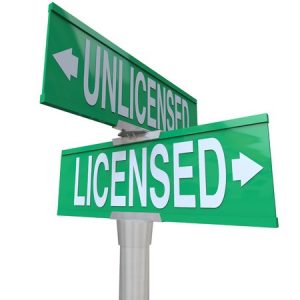“Failure to adhere to requirements related to foreign filing can have wide ranging consequences. At a minimum, in many instances, foreign filing that runs afoul of a country’s rules may vitiate any opportunity to obtain a patent for the given invention in that country.”

Most U.S. patent practitioners are keenly aware of the foreign filing license requirement for filing of U.S. patent applications abroad. Since it is common for U.S. based companies to file a U.S. priority patent application and take advantage of the one-year grace period for foreign filing, a foreign filing license is typically issued without much thought to the matter. Given the propensity for international companies and many universities to routinely carry out inventive activities in multiple countries by inventors of varied citizenships, the opportunities to run afoul of foreign filing license requirements is of growing concern, and this concern extends well beyond the walls of the U.S. Patent and Trademark Office (USPTO).
What to Know
Presently, 29 countries (including the United States) have some degree of foreign filing licensure requirements as part of their patent laws and regulations. A summary and reference to each country’s regulations can be found at the World Intellectual Property Office website. Because the foreign filing licensure requirements vary greatly, it is imperative that the rote gathering of inventorship information extend well beyond simply name, address, and citizenship.
In addition to knowing the citizenship status of each inventor, it is important to know where inventive activity occurred. Given that some countries’ foreign filing licensure requirements are based on residency as well as citizenship, this must also be taken into consideration to determine the proper country for filing of a first patent application for a new invention. Accordingly, even if the applicant is a U.S. based company or university, it may be necessary to first file outside of the U.S. if at least one inventor is a citizen (or possibly resident) of a foreign country, or if at least part of the inventive activity occurred in the foreign country. Of course, any belief that the subject matter of the invention may be sensitive in nature (e.g., related to national security or defense) must also be taken into consideration.
Obtaining a foreign filing license in the United States is a relatively simple process that requires only submission of a petition under 37 CFR §5.13 along with the petition fee and a copy of the material upon which a license is desired. Such request may be made on an expedited basis as well. Because of this, in situations where a first filing may legally be required in the United States as well as a foreign country (e.g., where one or more inventors are citizens of another country that requires a foreign filing license on this basis, or where at least part of the inventive activity occurred in another country that requires a foreign filing license on this basis), it may be most expedient to first file in the non-U.S. country after obtaining a foreign filing license from the USPTO. Regardless, having proper knowledge is the first step in circumventing potential problems.
In the countries where foreign filing licensure is currently required, the basis for the requirements may generally be broken into three categories: where the inventive activity occurred; the nature of the subject matter to be disclosed (e.g., including state secrets or items related to national security or national defense); and/or matters of citizenship, residency, or place of business for the invention owner. Provided below is a summary of the filing restrictions by country based upon the category into which they fall. Note that multiple countries require foreign filing licenses based upon multiple categories. Further, it is important to note that, in many instances, the requirement for a foreign filing license only applies to patent applications including disclosure that may be of interest for national defense or security (or military applications, in particular). Such countries are denoted by an asterisk (*) in the summary below.
Where Inventive Activity Occurred
Armenia – Requires that a patent application for an invention created in Armenia must be filed in Armenia before filing abroad.
China – Requires that any unit or individual that intends to apply for a patent in a foreign country for an invention accomplished in China shall submit the matter to the patent administration department for confidentiality examination. The requirement may be met by filing of an application in China or receiving clearance from the patent administration after obtaining the confidentiality examination.
Cyprus – Requires that a patent application for an invention created in Cyprus must be filed in Cyprus before filing abroad.
Kazakhstan – States that submission to foreign countries of an application for an invention created in Kazakhstan may be carried out three months after the date of submission of the application to the patent office or earlier, after completion of the review in relation to whether the application includes state secrets.
Norway* – Requires that inventions made in Norway expressly related to military technology or whose publication might prejudice national security may not be filed abroad without authorization.
Spain – Requires that a patent application for an invention created in Spain must be filed in Spain before filing abroad. The law, however, does provide for obtaining authorization from the Spanish Patent and Trademark Office to first file abroad.
Sweden* – Requires that inventions made in Sweden expressly related to defense may not be filed abroad without authorization.
Russia – Requires that a patent application for an invention created in Russia must be filed in Russia before filing abroad.
United States – Requires that a license must be obtained before filing any application in a foreign country if the invention was made in the United States. A license may be granted upon filing of the appropriate petition and may be obtained retroactively with an explanation of why the material was first filed abroad through error.
Applications Containing State Secrets
Azerbaijan, Germany, and Luxembourg all have restrictions based solely on the presence of state secrets. They each require that patent applications containing secrets relevant to the specific state must first be filed in that state prior to any filings abroad.
Citizenship, Residency, or Place of Business
Bulgaria*, Denmark*, Finland, India, Italy, Malaysia, Portugal, Singapore, South Korea*, Turkey*, United Kingdom*, and Vietnam each requires that patent applications for inventions made by residents of the given country must be first filed in the respective country. In India, the requirement may be waived after receipt of a written permit following submission of the proper request. The following countries have nuanced variations of similar requirements. Belgium* has requirements for applications by nationals or by natural or legal persons having a residence or principal place of business in Belgium. Belarus and France have requirements for applications by natural or legal persons having a residence or principal place of business in the respective country. Greece has requirements for applications by Greek nationals. Israel* has requirements for applications by Israeli nationals and residents. Norway* has requirements for applications by residents or inventions owned by residents. Sweden* has requirements for applications by residents and inventions owned by Swedish companies.
Failure to adhere to requirements related to foreign filing can have wide ranging consequences. At a minimum, in many instances, foreign filing that runs afoul of a country’s rules may vitiate any opportunity to obtain a patent for the given invention in that country. In other instances, failure to adhere to the foreign filing requirements of a given country can result in application of fines or even imprisonment of the offending individual(s). Although the most extreme punishments are likely rare, it is nevertheless a relatively simple matter to “check the box” early on in preparation of a patent application to consider whether any of the above requirements apply. One can then take the appropriate steps to either proceed with first filing in the appropriate country and/or obtain the necessary licensure from one or more implicated countries to ensure that the first filing does not contravene any relevant laws.
Because laws vary significantly by country, it is always best practice to contact a qualified practitioner in a given country where questions arise because of inventive activity in that country or where an inventor (or even the applicant) has citizenship and/or residency outside of the United States. One can then make the necessarily informed decision on how to best proceed with first filings.

![[IPWatchdog Logo]](https://ipwatchdog.com/wp-content/themes/IPWatchdog%20-%202023/assets/images/temp/logo-small@2x.png)

![[Advertisement]](https://ipwatchdog.com/wp-content/uploads/2024/04/Patent-Litigation-Masters-2024-sidebar-early-bird-ends-Apr-21-last-chance-700x500-1.jpg)

![[Advertisement]](https://ipwatchdog.com/wp-content/uploads/2021/12/WEBINAR-336-x-280-px.png)
![[Advertisement]](https://ipwatchdog.com/wp-content/uploads/2021/12/2021-Patent-Practice-on-Demand-recorded-Feb-2021-336-x-280.jpg)
![[Advertisement]](https://ipwatchdog.com/wp-content/uploads/2021/12/Ad-4-The-Invent-Patent-System™.png)







Join the Discussion
5 comments so far.
Anon
June 14, 2019 01:03 pmThanks J. Doerre.
I am curious now in regards to a hypothetical (although one easily seen to occur in reality) for an application for invention with multiple inventors and competing First Nation Action requirements…
J. Doerre
June 14, 2019 10:45 amGreat article. I just wanted to follow up to note to be especially careful any time you have an inventor from India, as the penalties for an Indian inventor can theoretically include imprisonment (although I am not sure whether that ever actually happens in practice). See Indian Patent Act, section 39 (“No person resident in India shall, except under the authority of a written permit sought in the manner prescribed and granted by or on behalf of the Controller, make or cause to be made any application outside India for the grant of a patent for an invention unless… an application for a patent for the same invention has been made in India, not less than six weeks before the application outside India”); section 118 (“If any person … makes or causes to be made an application for the grant of a patent in contravention of section 39 he shall be punishable with imprisonment for a term which may extend to two years, or with fine, or with both.”)
Anon
June 14, 2019 10:40 amOne aspect that I would like to see more detail on is the intersection with IBIS-type controls (I may have the acronym off…).
For at least the US, this presents a very real (and unrecoverable) danger of losing patent rights. The comment in the article about “upon filing of the appropriate petition and may be obtained retroactively with an explanation of why the material was first filed abroad through error.” does NOT seem accurate when the penalty for violating Export Control rules is unforgiving — unless I missed a change in those rules somewhere along the last 20 years…
Night Writer
June 14, 2019 07:33 amThis is kind of interesting, but as someone that regularly works with inventors from many of the countries you list above, I’d say that the devil is in the details.
You have to know the exact rules of the country and then just get used to dealing with that country. China you get a foreign filing license and have to give some advanced warning. Israel only applies with defense type of inventions and almost never applies, etc. You need a spreadsheet with all the rules and what to do.
Paul Georg Maué
June 13, 2019 12:41 pmThank you, Ryan, for this interesting article highlighting that not only the US has foreign filing licensure requirements.
One small remark regarding language: I would prefer to call “the one-year grace period” “the priority year” and leave the term “grace period” for any additional, non-Paris Convention time prior to filing an application.